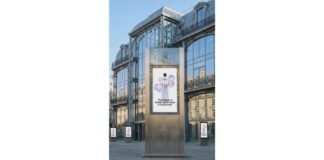The first batch of self tests for covid-19 was delivered to pharmacies today.
According to Deputy Minister of Health Vassilis Kontozamanis, the next delivery is scheduled for the middle of next week and the last one at the beginning of the week after next.
Each citizen will be entitled to one test per week, with high school students aged 16-18 and teachers being the first to be able to obtain the test as schools open this Monday, April 12.
It will then be given to 18 to 64 year olds and finally to those over 67, which includes those who have already had the vaccine.
The website self-testing.gov.gr, which was created to report positive or negative results of self-tests, went live today.
Pharmacists recommend that beneficiaries obtain the self-tests during the hours that pharmacies are open and not to go to those on duty.
What will you do in case of a positive result?
Initially, all parents will be able to receive free self-tests for their children by showing their social security numbers, in real time, in order to avoid multiple requests for tests in different pharmacies by the same person.
The self-test will take place at home from 24 to 48 hours before the start of the course and the result will be declared on the relevant platform. Within the test package, there are clear printed instructions on the procedure.
In case of a negative result, the parent/guardian must print and sign the relevant certificate which the student will carry with him/her throughout the week and show it to the teacher of his/her class who will be in charge of the attendance register.
In positive cases, they should have a second antigen test as soon as possible, by a health professional, either in a public facility (in which case it will be free of charge) or in a private facility.
Problem with non-individual test kits!
Confusion was caused in pharmacies, with the Panhellenic Pharmaceutical Association (PFS) declaring itself extremely upset, as the packages of self-tests are not individual but contain 25 tests, forcing pharmacists to prepare them separately for each customer.
According to the first information, the packages include 25 detailed instructions of the specific test with a photographic representation, 25 pieces of cotton swab, the well-known cotton swab, for taking nasal swab, 25 test tubes with integrated liquid reagent, 25 special adaptable stoppers for the tube, which acts as a dropper and 25 boards for conducting the self-test. “The company was required to provide all of the above in individual packages. Pharmacists cannot be asked to distribute the reagents by placing them in millions of individual packages. The state had a duty to control the process and ensure the correctness of the packages. ” said a representative of the Panhellenic Pharmaceutical Association, demanding that subsequent deliveries, of other tenders, be correct in individual packages. The opposite view seems to have the Minister of Development Adonis Georgiades, who wondered how it is possible for pharmacists to claim something like this, since the packaging is 25 pieces worldwide and not individual.
“There is nowhere else in the world other than the 25-piece package. There are individual ones in Germany that sell for quite a lot of money. The free self-tests are in twenty-five all over the planet. It was in the full knowledge of the pharmacists.” Adonis Georgiades, concluding that all this was posted in the competition that ran.

